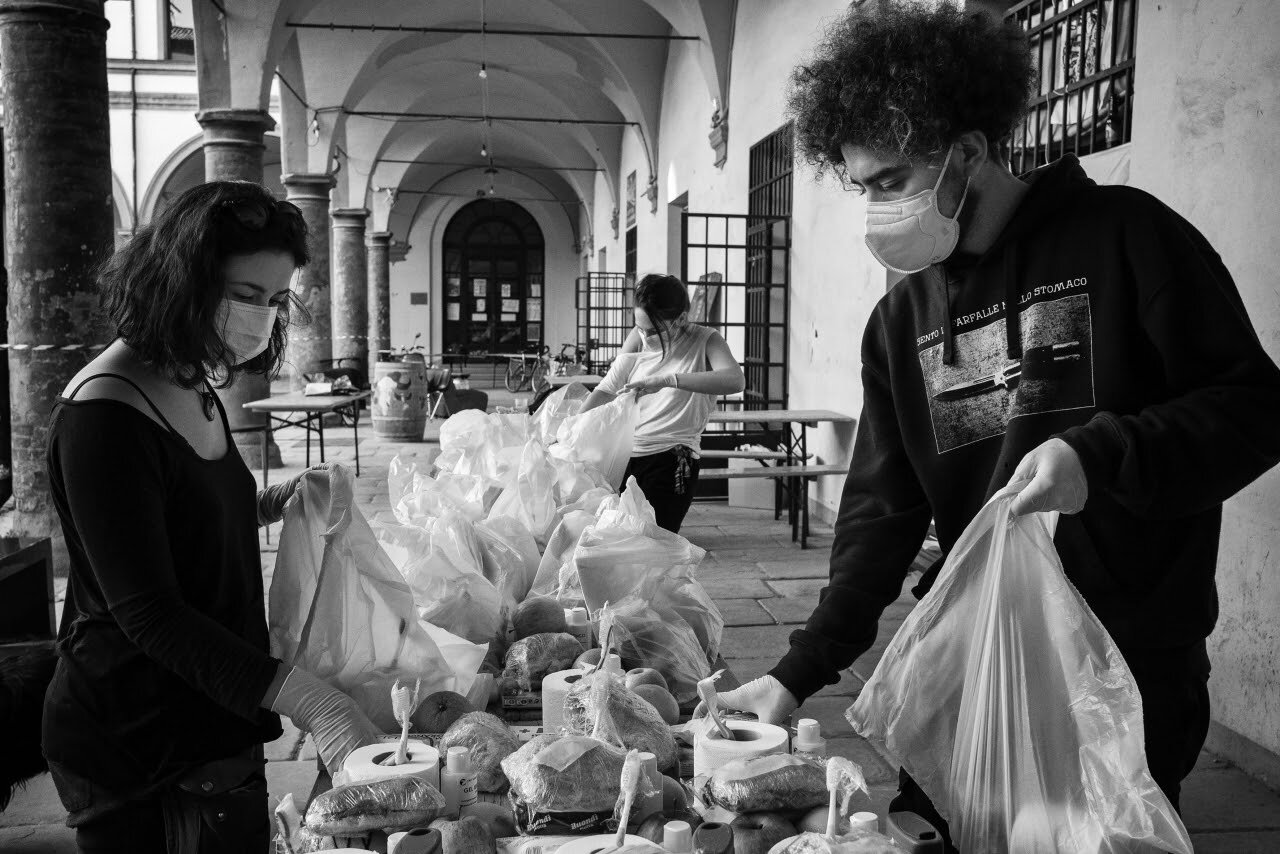Solidarity in Bologna: the Antibody to Any Virus
(Disclaimer: La Tonique Media LLC does not represent any political ideology. While we do not espouse any political beliefs, we do seek to provide a balance perspective by incorporating voices from both sides of the political spectrum.)
By Giulia Miraglia
We are living in a very delicate historical moment that sees our everyday lives marked by physical and social distance. The health crisis and the measures taken to prevent the spread of COVID-19 do not have the same repercussions on everyone. For many, social distancing means uncertainty, loneliness, and severely limited access to food and basic necessities. Those who already lived in conditions of vulnerability and social marginality are still suffering the consequences of this pandemic and find themselves more exposed both to infection and the absence of human relationships.
(Volunteers deliver supplies via bicycle in Bologna, 2020)
(Giulio Di Meo | laRegione)
During the first total lockdown in Italy, a sense of solidarity and community belonging came from Bologna, the largest city of the Emilia-Romagna region. The Yabasta, Làbas and TPO associations started a crowdfunding campaign for “Partisan Food Relays” on the “produzione dal basso” platform. Funds were allocated to the purchase of food, hygienic-sanitary kits, clothes, and basic necessities addressed especially to homeless and elderly people. The volunteers set up an efficient network connecting the whole city, from the southern to the northern zones and delivered goods by bicycles. Lino, a student that has joined the project, said they particularly addressed the homeless, “On Wednesday morning the distribution of breakfast and on Sunday evening dinner. On Thursday evening the delivery, street by street, of bags containing food and other basic necessities such as toothbrushes, toothpaste, sanitary towels. The minimum necessary for personal care.”
(Volunteers assist with preparing necessities in Bologna, 2020)
(Giulio Di Meo | LaRegione)
Through the Popular Health Laboratory of Làbas, sustained also by doctors, nurses, and psychologists, volunteers provided and still provide support and medical-psychological telephone consulting service for the COVID-19 emergency. Incredibly, they did not forget anyone. Lots of children and teenagers found themselves at home, out of school and social contexts, dealing with internet connection problems and distance learning. The network has been able to reach their houses and brought them lots of interesting books.
All the donations are still used to ease the weight that this health and economic crisis is placing on people’s shoulders. They aim at laying the foundation for a better “normality” than before.
The core concept is still not to leave anybody alone in facing the pandemic and social distancing but to oppose a solid social network built up through reciprocity and mutual aid brigades. The volunteers went beyond the charitable delivery of items. They pushed for mutualism and “la proximité” as conceptualized by the French historian and sociologist Pierre Rosanvallon in his book La Légitimité démocratique: Impartialité, réflexivité, proximité. Proximity is the relationship with others, the meeting between subjects that makes them present to each other without the intervention of a mediating institution. To help the other (prochain) is a voluntary act of approach to show feelings of solidarity and to be socially active. Therefore, it may represent the paradigm of the behavior prototype for the XXI century.
Check out a video on the Partisan Food Relays (in Italian).
Giulia is a political writer for La Tonique. You can follow Giulia on Twitter @gm_miraglia.

